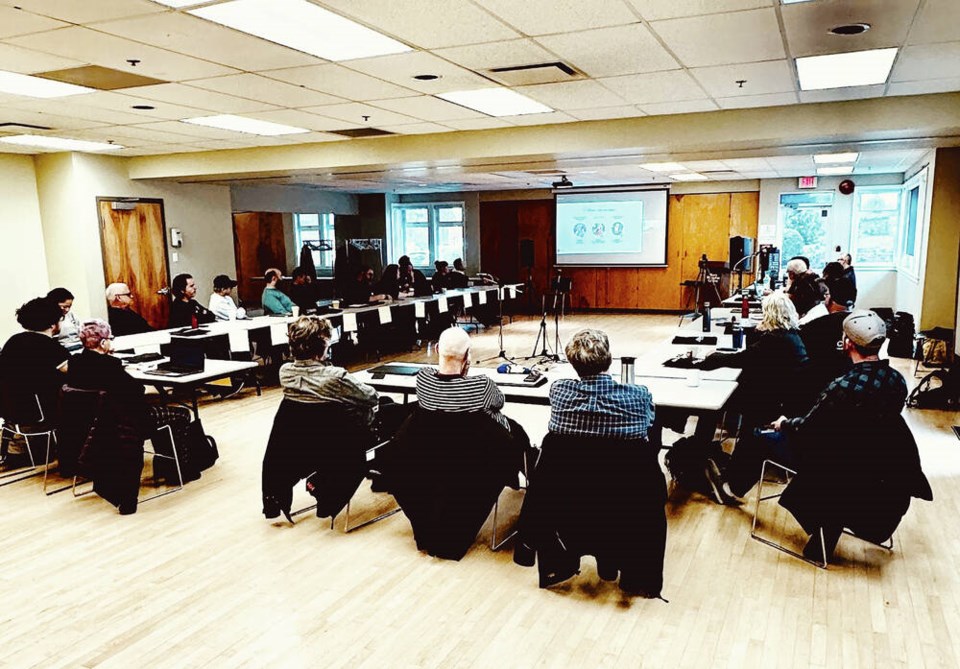Community radio station managers from Nanaimo to St. Johns, N.L., gathered for a summit in Sidney, are discussing how artificial intelligence could help them
“There’s massive changes in the broadcast industry, particularly radio broadcasts,” said Bill Collins, station manager of Radio Sidney, the Saanich Peninsula-based community radio station which hosted this year’s summit. “It’s becoming more and more evident that news and information — grassroots, at a community level — is going to be really important in the future.”
This year, the summit focused on how the radio industry is dealing with artificial intelligence, with a keynote talk by a representative from Futuri, a company that provides AI-powered software for the media industry.
Barry Rooke, executive director of the National Campus and Community Radio Association (NCRA/ANREC) said while this year’s summit will open the conversations on deploying AI on radio airwaves, the association has yet to take an official stance, saying that it’s still “an early discussion.”
But artificial intelligence could be a boon in completing administrative and creative tasks, such as writing grants applications and creating promotional posters, he said.
A tool called Radio GPT can generate five-minute voice newscasts, created by automatically scraping news sources and social media feeds. “And you can’t tell the difference from a human voice, these radio voices are pretty spectacular,” Collins said. “But of course, it comes with a lot of caveats.”
Collins said he’s excited about the potential productivity increase that artificial intelligence might bring to radio operations.
But there are also the downsides such as the possibility of AI-generated misinformation and it’s important to strike a balance between productivity and accuracy, he said.
Listeners are looking for authenticity, Collins said, adding that there are mandates at stations to feature voices from diverse, underrepresented communities.
Rooke said the community radio sector is seeing growth despite not receiving stable funding from governments, a common practice in other developed countries.
On Vancouver Island, while stations have closed at Lake Cowichan and Gabriola Island, a startup is attempting to launch a new station in the Comox Valley, he said. “We know of at least a dozen startup stations that are waiting for the CRTC to change its licensing rules and allow for new applications to broadcast.”
Community radio provides local programming to areas that have been deemed unprofitable by commercial radio companies, he said, adding that community radio’s central mission is to share local voices. “Our goal is to create flourishing communities by sharing information and news and passion.”
Collins agrees. His station, Radio Sidney, has produced more than 750 shows since it launched in 2018 as a digital-only radio station.
The station has conducted more than 68 hours worth of interviews with local election candidates since its inception, Collins said, adding that people have written in to say that Radio Sidney’s candidate interviews helped them with voting.
“The key is building community [and] protecting democracy, one interview at a time.”
>>> To comment on this article, write a letter to the editor: [email protected]



